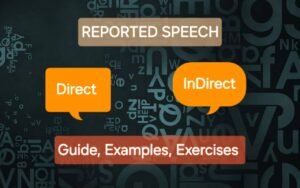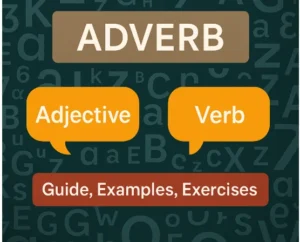Modal Verbs in English: Rules, Types, and Examples for Students – Practice Test
Select Your Practice Test- Choose Your Difficult Level
Easy – Class 6 & Class 7 – Intermediate – Class 7 & Class 8 – Hard – Class 9 & Class 10
MCQ Test, Self Assessment
| Chapter | Test Type |
|---|---|
| Easy | |
| Intermediate | |
| Hard |
✅ What are Modal Verbs?
Modal verbs are auxiliary verbs (helping verbs) used to express ability, possibility, permission, necessity, obligation, and advice. They modify the main verb in a sentence and do not change form (no -s, -ed, or -ing).
📝 List of Common Modal Verbs:
- Can
- Could
- May
- Might
- Will
- Would
- Shall
- Should
- Must
- Ought to
- Need (sometimes modal)
- Dare (sometimes modal)
- Used to (semi-modal)
🧩 Structure of Modal Verbs:
Subject + Modal Verb + Base Verb + Object
Example:
She can dance well.
🔍 Types of Modal Verbs with Examples
1. Ability
- Can (present/future ability)
She can speak French. - Could (past ability)
He could swim when he was five.
2. Possibility
- May, Might, Could
It may rain today.
He might be at home.
They could arrive early.
3. Permission
- Can, May, Could (polite)
Can I leave early today?
May I use your phone?
Could I borrow your book?
4. Request / Offer / Suggestion
- Can, Could, Shall, Will, Would
Can you help me?
Could you close the door?
Shall we go for a walk?
Would you like some coffee?
5. Advice / Recommendation
- Should, Ought to, Had better
You should drink more water.
He ought to apologize.
You had better leave now.
6. Obligation / Necessity
- Must, Have to, Need to
You must wear a seatbelt.
I have to finish this work.
You need to be careful.
7. Prohibition
- Must not (mustn’t), Cannot (can’t)
You must not smoke here.
You can’t park here.
8. Deduction / Certainty
- Must, Can’t, Could (past/future probability)
He must be the manager (I’m sure).
She can’t be serious.
They could be working late.
9. Habit in the Past
- Used to
I used to play football every weekend.
10. Semi-modals
- Need, Dare, Used to (used like modals in some cases)
You needn’t worry.
He dare not speak.
📌 Rules and Notes
- No ‘s’ for third person singular:
He can swim. (NOT “cans”) - Always followed by base verb (V1):
She should go now. - No tense changes directly on modals:
Use substitutes for past (e.g., “had to” for “must”).
📚 Practice Sentences
- I can ride a bike.
- You should take an umbrella.
- He may join us later.
- We must complete this by Monday.
- They could have won the game.
- Would you like some tea?
- She used to live in Delhi.
🧠 Tip for Students
To master modal verbs:
- Practice using them in real-life examples.
- Try forming questions and negatives.
- Use them in different tenses with modal substitutes.
🔍 Advanced Modal Verb Exercises – Questions Only
- He ________ have forgotten the meeting. He never misses important dates.
- You ________ have seen John at the mall yesterday; he was out of town.
- She ________ have told him the truth earlier. Now it’s too late.
- ________ we consider a different approach to the problem?
- You ________ have taken your umbrella. Now you’re soaking wet.
- They ________ be at home already, considering how late it is.
- I ________ call her, but I’m not sure if she’s awake.
- You ________ be joking! That can’t possibly be true.
- He ________ have been more careful while handling the antique vase.
- We ________ not interfere unless absolutely necessary.
Answers
- must
- can’t
- should
- Shall / Could
- should
- must
- might
- must
- could
- should


